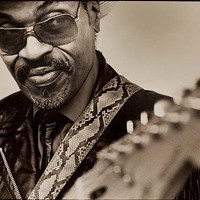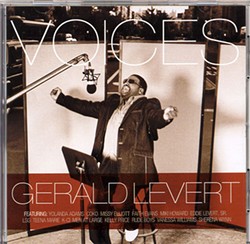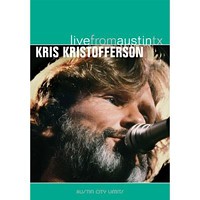O brothers, where art thou?
Traditional soul men are scarce in the 21st centuryThe Redneck Negress
By Kandia Crazy HorseCherchez Mtume: That's what it comes down to when one bemoans the fate of R&B and black radio. Producer/musician James Mtume's late-70s compression of sound with synths hit big with his own Quiet Storm staple "Juicy Fruit." Mtume helped fashion electro, and between his aesthetic and the late-80s mainstreaming of rap, the big bands were eliminated, singers became reduced to hook providers ... and R&B fell into ruin.
Erstwhile Mtume client Gerald Levert's new compilation, Voices (Atlantic/Rhino; Rating: * 1/2), is a prime artifact of this process's end point. The hodgepodge of duets between Levert and a range of contemporary urban stars -- from gospel diva Yolanda Adams to the Widow Biggie (aka Faith Evans) -- are sadly moribund. Such fine sangin' sistas as Kelly Price (on "All I Want Is You," also featuring CLT's own K-Ci) and Teena Marie ("A Rose By Any Other Name") still fail to redeem the disc. Not even "Wind Beneath My Wings," the collaboration with the singer's legendary father, Eddie Levert, Sr. of the O'Jays, takes off. Gerald Levert has long been a frustrating figure -- along with Bebe Winans, he sports one of the fullest, grittiest soul voices around, which is almost always wasted on pabulum.
Crossover is not the key culprit in R&B's demise, as Sony's recent slate of Sam Cooke reissues show -- see The Best of Sam Cooke (RCA/Legacy; Rating: ***). Mid-20th century musical legend Cooke -- garnering a lot of attention presently, including Peter Guralnick's biography Dream Boogie: The Triumph of Sam Cooke (Little, Brown) -- certainly died a bluesman's death, murdered in a seedy hotel in 1964 by a madam. Yet his career -- which very closely presages those of Motown's wannabe sepia Sinatra, Marvin Gaye, and psych-rock, multi-kulti hero Sly Stone in the 60s -- was characterized by the outreach to the mass pop audience that previously had been closed to black artists. The smooth sender's essence is well represented here with the aforementioned Best Of and the fabled One Night Stand! Sam Cooke Live at the Harlem Square Club (RCA/Legacy; Rating: *** 1/2) -- although the sole sin of omission is a big one, the Civil Rights era anthem "A Change Is Gonna Come." Cooke is at his best on Night Beat (RCA/Legacy; Rating: *** 1/2); his standard "Having A Party" is a thrilling reminder of both his greatness and that of recently deceased R&B icon Luther Vandross, who covered the tune in the 80s.
Although Rod Stewart didn't appear at the Rock and Roll Hall of Fame's recent Cooke tribute concerts in Cleveland, the reissue package includes the lapsed British Invasion rock star's endorsement of One Night Stand: "One of my favorite live recordings of all time!" The Artist Formerly Known as Rod the Mod is now mostly famous for blonde modelizing and his current run of American songbook smashes masterminded by old-school label head Clive Davis; it's as if last year's Faces box set never dropped. Those hoping for a miraculous return to that band's proto-Cock Rock will be dismayed by the presence of Dave Koz and Chris Botti on Stewart's new Thanks For The Memory -- The Great American Songbook Vol. IV (J; Rating: **). Vol. IV does feature a cover of Cooke's most famous song, "You Send Me," fittingly a duet with fellow rock & soul survivor Chaka Khan, who has redeemed her reputation since the early 90s by exercising her jazz chops -- see her "My Funny Valentine," another tune Stewart takes on here. His problem is that he was at his best with the Jeff Beck Group and on his initial solo albums -- and that was a long, long time ago. Only the inclusion of Khan and such neo-traditionalist jazz players as George Benson and Roy Hargrove leavens the smooth that's antithetical to Stewart's grit.
Stewart loves to wax about sneaking into Harlem's Apollo Theater in the late 60s to see black acts like the Temptations. After the mostly Alabama-bred vocal group's own resuscitation by producer Norman Whitfield ("Cloud Nine"), the Tempting Tempts partially imploded when Motown defected to LA in the early 70s. That's when Eddie Kendricks (the memorable falsetto on "Cloud Nine") went solo. Keep On Truckin': The Motown Solo Albums, Vol. 1 (Motown; Rating: ***) features the hits you'd expect, especially "Boogie Down" and the incendiary title track. However, the dancefloor-burnin' genius of "Keep On Truckin'" is most interesting for the way it shows how Kendricks was used as a sort of guinea pig for working Sly Stone's funky psych-rock template into the blackstream. The percussive horns and dropout harmonies are self-evident. What are more mysterious are his twangy forays into Shuggie Otis territory, like "Day By Day" and the black-power masterpiece "My People ... Hold On." The latter anthem is all dirge-like polyrhythms, spooky bass and droning, spacey vocals -- a marvel of sonic memento mori and hopeful messages for the Race.
Latest in Redneck Negress
More by Kandia Crazy Horse
-

Godfather of Go-Go Chuck Brown now winds it up on high
May 18, 2012 -
Kings of the South
May 30, 2007 -
Rock of ages
May 16, 2007 - More »
Calendar
-
SAINT MOTEL - The Awards Show @ N.C. Music Factory
-
Wage War & Nothing More @ N.C. Music Factory
-
Taylor Acorn @ Amos' Southend
-

Famed Blues-Rocker Coco Montoya Celebrates New Album at the Neighborhood Theatre! @ Neighborhood Theatre
-
The Price Club Tour: Connor Price @ The Underground
-
Angela Saylor Brings Her Electronic Music Project 'Minthill' Back Home
The Art of Memory
-
Evanescence, Lindsey Stirling bring new energy to PNC Music Pavilion
Band backed by orchestra bring renewed life to their songs.
-
Take a trip to Margaritaville - Jimmy Buffett giveaway 35
Win two tickets to his Charlotte concert on April 21.














